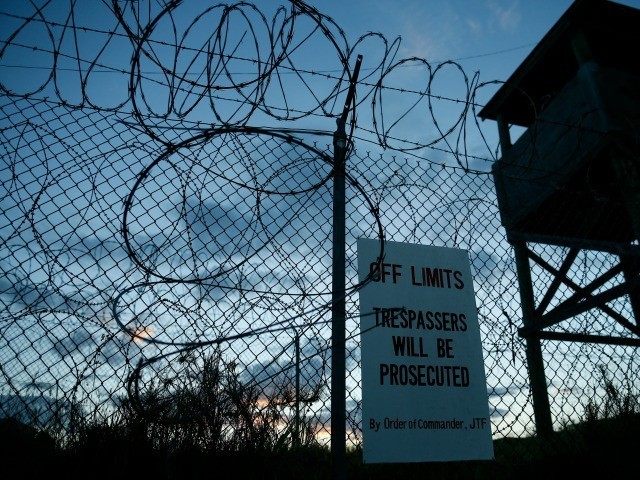In a speech at a summit of Latin American nations this week, Cuban communist dictator Raúl Castro insisted that should the United States not gift Cuba the return of the Guantánamo Bay military base, further talks to normalize relations with the rogue island nation would yield little progress.
Castro added that he did not find it “just” to ask of Cuba “anything in return.”
In what is believed to be the first call to have Guantánamo returned to Cuban ownership since President Obama announced major concessions to the Cuban government in December, in exchange from the freedom of USAID worker Alan Gross, Castro demanded a complete repeal of the American embargo on Cuba as well as additional land to govern. According to the BBC, Castro referred to Guantánamo as “illegally occupied” and equated it to the lifting of the embargo.
The United States negotiated the takeover of Guantánamo with the Cuban government in 1903; it has been legally occupied by its rightful owner since.
Castro delivered his speech at a summit of the Community of Latin American and Caribbean States (CELAC) in Costa Rica. According to transcripts, Castro equated the return of Guatánamo with “normalization”:
The reestablishment of diplomatic relations is the beginning of a process towards normalization of bilateral relations, but this will not be possible while the blockade exists, the territory illegally occupied by the Guatánamo naval base ins not returned, transmissions of radio and television signals that violate international norms does not cease, there is no just compensation to our people for the human and economic damage they have suffered. It would not be ethical, just, nor acceptable to ask of Cuba anything in return.
The Cuban government only returned Gross and one unidentified American agent to the United States in exchange for the three remaining members of the “Cuban Five”–a spy group responsible for the deaths of four American citizens–and extended trade privileges with the United States, which may include the expanded ability of U.S. citizens and corporations to do business on the island. The Cuban government has made clear it does not expect to make any concessions in this negotiation.
The first round of talks between representatives of the two governments in Havana concluded with no significant strides made in efforts to convince Cuba to end its oppressive crackdown on political dissidents. Josefina Vidal, the diplomat tasked with representing the Cuban government, stated categorically to the press that “changes in Cuba aren’t negotiable.” Castro’s speech emphasizing that Cuba compromising on any issue at all is not “acceptable” cements the conclusion that Cuba has no interest in negotiations, only concessions on the part of the Obama administration.
Castro’s assertions that the communist government is unwilling to compromise on any issue follow statements in state newspaper Granma allegedly made by his older brother, Fidel, that the United States government is not to be trusted in such dealings. “I don’t trust the politics of the United States, nor have I exchanged a word with them,” Fidel Castro allegedly writes, “but that does not mean a rejection of a peaceful solution to conflicts or the threat of war.”
Meanwhile, Granma‘s top headline today has little to do with any peaceful solution to the oppression of Cubans on the island, or even reestablishment of meaningful diplomacy with the United States. In an article titled “A Relationship with a Solid Base,” the newspaper boasts of the Cuban government finalizing “five bilateral agreements related to agriculture, telecommunications, and commercial contracts” with the Chinese government.

COMMENTS
Please let us know if you're having issues with commenting.